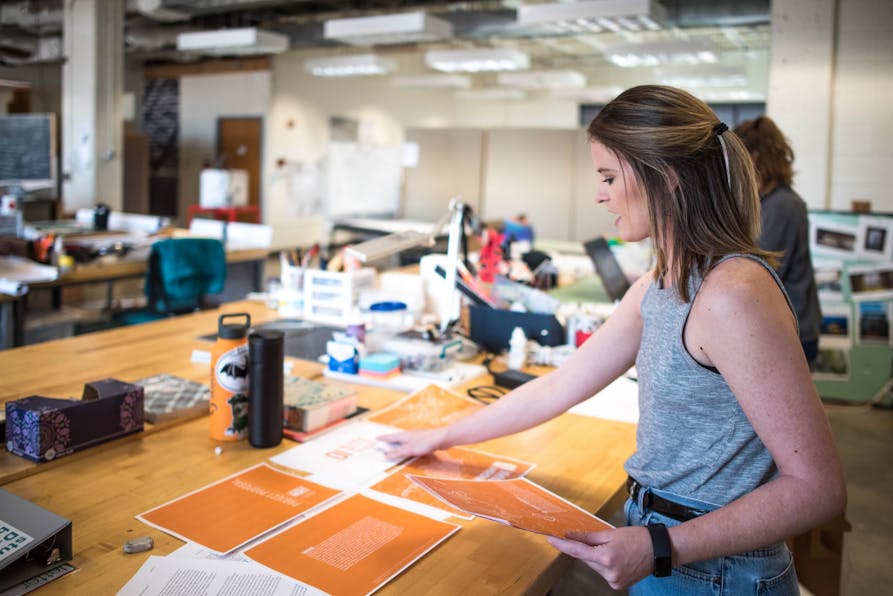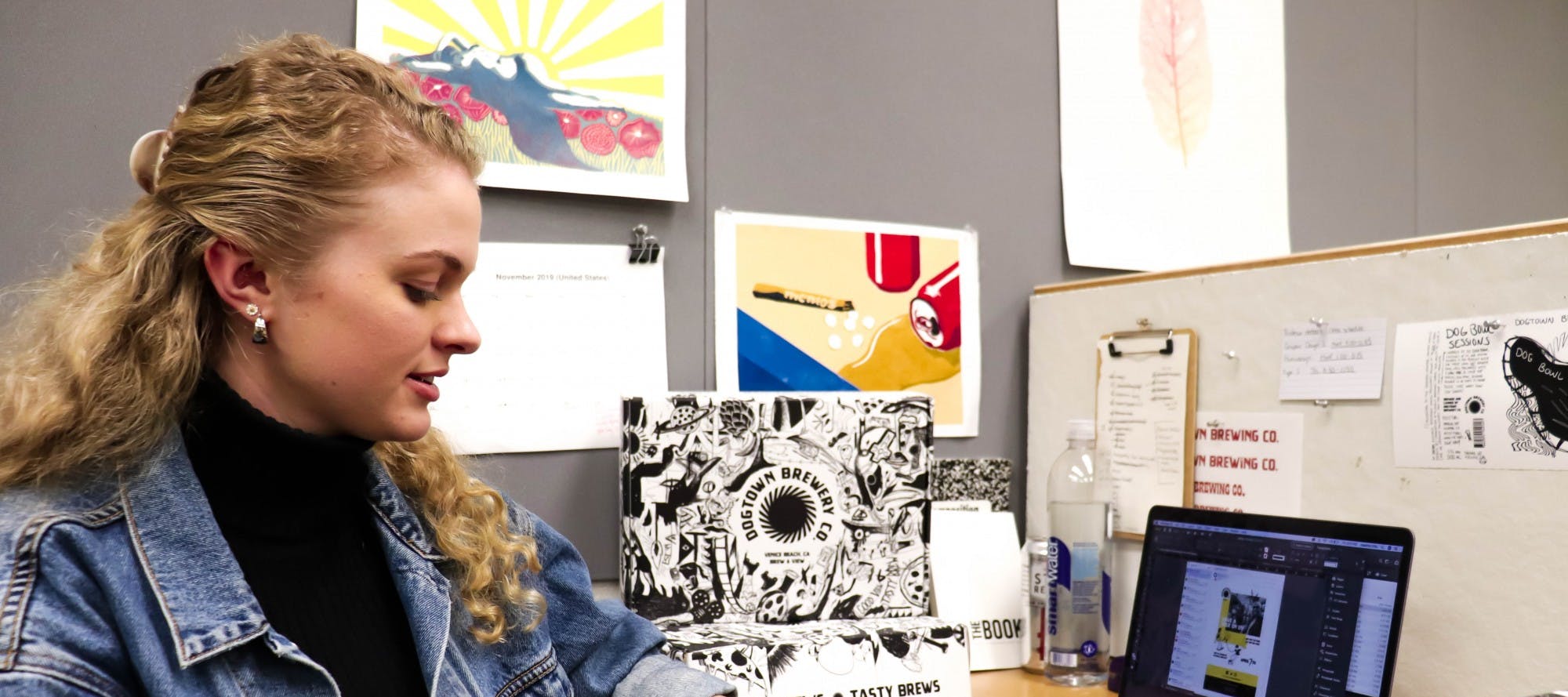Projects and theses are things that an Auburn senior is all too familiar with. Though they can be daunting, these required assignments provide hands-on experience in all different career fields. They allow students to explore and apply their passions, develop critical thinking skills and create new ideas. These five Auburn seniors from across campus have learned that, by culminating academic experiences through a project, students can be more prepared for the demands of the job market and graduate schools.
As a building science major, Elliott Oslund had to treat his thesis like a job. His senior project consisted of producing a 3D structural model, a price breakdown, a project schedule, and other miscellaneous and contractual documents for a 10,000 square foot fire station. The senior project was designed by the building science department to be as lifelike as possible, preparing students for the industry once they graduate. After graduation, Oslund is headed to a construction company in Nashville, where he will regularly use the skills he gained in working on his senior project. “A lot of the contract documents are things I will be dealing with when I start my job,” he noted.
Jacob Stotser, a mechanical engineering student with a computer science minor, decided to work closely with the kinesiology department for his undergraduate research fellowship. He and a select team of students and faculty from across the university are working on a “trip and slip” algorithm, a software to simulate trips and slips on a treadmill. His contribution is writing the code to develop the study, correlating factors like leg strength, anxiety, depression, and more to quantify a person’s ultimate fall risk. Ultimately, the team would like to use this research to make people more aware of their fall risk or even prevent it from happening. He predicts that, in his future work in patent litigation, a STEM degree and his experience in undergraduate research will be incredibly beneficial. “Though the subject matter is different,” Stotser says, “the skills are all translatable.”
Ella O’Neill, a history major, looked at significant media portrayals of women’s suffrage from 1911-1920 in Alabama. Comparing the regional differences of the Birmingham News and the Montgomery Advertiser, O’Neill carefully studied how a progressive movement manifested in a conservative state like Alabama. By finding this angle that few have looked at before, her research is valuable to historical scholarship not only at Auburn but across the country. “We have students that are not just learning history- they are producing it,” she says. “People think that history is just learning facts and dates and events, but history is about making arguments, understanding contexts and developing new ideas and new ways of looking at things.”
When her family was searching for homes for her grandmother, Lauren Wertz, a fifth-year student in architecture, discovered that a whole age group was being cast to the side with their housing situations being less than ideal. For her senior project, Wertz took the first steps to create a block of housing in a low-income area of Birmingham that would benefit this age group. Wertz decided to focus her specific design around a block of multigenerational housing, creating interdependence between generations. As she was able to work on her proposal for this block of housing, she was able to discover her passion for not only crafting beautiful and practical architecture but also for helping people live more efficiently. “You can design a very simple house for someone, but you could change their life,” Wertz explained.

Lauren Wertz putting the final touches on her project about multi-generational housing. Photo by Madeline Ellison
For her senior project, graphic design student Heather Ellis designed multiple pieces for a fictional “brew and view,” a movie theater where customers can bring in beer, purchase pizza at a nearby pizzeria and watch a cheap movie. As a requirement, Ellis had to propose many physical items that could be used to promote the business. She designed beer can labels, a subscription box, t-shirts, posters and more. From an epiphany midway through the semester that completely changed the style of her project to constant input from the program, she says that the project helped her to become more open-minded. “The professors taught me that even if you are strong-headed about what you want a project to be, a client’s opinion can lead you to start from scratch, and you have to be ready for that.” Throughout her project, Ellis discovered the necessity of input from her peers and instructors. “In the real world, there is always going to be a team of people designing something, and we have to get used to working with differing opinions,” she described. “But even though it was a big undertaking, nobody was on their own, and everyone was helping each other.”
Even though these seniors came from different backgrounds, they all shared a similar experience in their senior year. Though the projects and theses can become a hassle, the conclusion among seniors is ubiquitous: their projects gave them a critically important exposure into the career they are about to enter. They all worked on large-scale projects that not only changed the way they looked at their careers but, for some, changed the way that they looked at the world around them. Regardless of which field of study they come from, these Auburn students will take their senior experiences and undoubtedly change the world.
By Sydney Bowdoin
As seen in Glomerata 123


